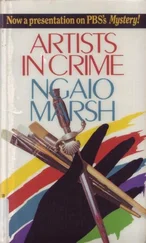Sarah Bolton - Famous European Artists
Здесь есть возможность читать онлайн «Sarah Bolton - Famous European Artists» — ознакомительный отрывок электронной книги совершенно бесплатно, а после прочтения отрывка купить полную версию. В некоторых случаях можно слушать аудио, скачать через торрент в формате fb2 и присутствует краткое содержание. ISBN: , Жанр: foreign_prose, foreign_antique, foreign_language, на английском языке. Описание произведения, (предисловие) а так же отзывы посетителей доступны на портале библиотеки ЛибКат.
- Название:Famous European Artists
- Автор:
- Жанр:
- Год:неизвестен
- ISBN:http://www.gutenberg.org/ebooks/39380
- Рейтинг книги:5 / 5. Голосов: 1
-
Избранное:Добавить в избранное
- Отзывы:
-
Ваша оценка:
- 100
- 1
- 2
- 3
- 4
- 5
Famous European Artists: краткое содержание, описание и аннотация
Предлагаем к чтению аннотацию, описание, краткое содержание или предисловие (зависит от того, что написал сам автор книги «Famous European Artists»). Если вы не нашли необходимую информацию о книге — напишите в комментариях, мы постараемся отыскать её.
Famous European Artists — читать онлайн ознакомительный отрывок
Ниже представлен текст книги, разбитый по страницам. Система сохранения места последней прочитанной страницы, позволяет с удобством читать онлайн бесплатно книгу «Famous European Artists», без необходимости каждый раз заново искать на чём Вы остановились. Поставьте закладку, и сможете в любой момент перейти на страницу, на которой закончили чтение.
Интервал:
Закладка:
In Richter's works of Leonardo are many fables: "A razor, having come out of the sheath in which it was usually concealed, and placed itself in the sunlight, saw how brightly the sun was reflected from its surface. Mightily pleased thereat, it began to reason with itself after this fashion: 'Shall I now go back to the shop which I have just quitted? Certainly it cannot be pleasing to the gods that such dazzling beauty should be linked to such baseness of spirit. What a madness it would be that should lead me to shave the soaped beards of country bumpkins! Is this a form fitted to such base mechanical uses? Assuredly not. I shall withdraw myself into some secluded spot, and, in calm repose, pass away my life.'
"Having therefore concealed itself for some months, on leaving its sheath one day and returning to the open air, it found itself looking just like a rusty saw, and totally unable to reflect the glorious sun from its tarnished surface. It lamented in vain this irreparable loss, and said to itself, 'How much better had I kept up the lost keenness of my edge, by practising with my friend the barber. What has become of my once brilliant surface? This abominable rust has eaten it all up.' If genius chooses to indulge in sloth, it must not expect to preserve the keen edge which the rust of ignorance will soon destroy."
Richter also gives many pages of terse moral sentiments, showing that Da Vinci, in his more than thirty years of writing, – he began to write when he was about thirty, – had thought deeply and probably conformed his life to his thoughts.
"It is easier to contend with evil at the first than at the last.
"You can have no dominion greater or less than that over yourself.
"If the thing loved is base, the lover becomes base.
"That is not riches which may be lost; virtue is our true good, and the true reward of its possessor. That cannot be lost, that never deserts us, but when life leaves us. As to property and external riches, hold them with trembling; they often leave their possessor in contempt, and mocked at for having lost them.
"Learning acquired in youth arrests the evil of old age; and if you understand that old age has wisdom for its food, you will so conduct yourself in youth that your old age will not lack for nourishment.
"The acquisition of any knowledge is always of use to the intellect; because it may thus drive out useless things, and retain the good.
"Avoid studies of which the result dies with the worker.
"Reprove your friend in secret, and praise him openly."
In the midst of the corruption of that age, we hear no word breathed against the character of this eager, brilliant, many-sided man. He won from his pupils the most complete devotion, and he seems to have given as fond an affection in return. This possibly satisfied the craving of the human heart for love. Perhaps, after all, life did not appear as satisfactory as he could have wished, with all his worship of the beautiful, for he says, "When I thought I was learning to live, I was but learning to die." He seemed at the zenith of his powers when death came; but who shall estimate the value of a life by its length? He said, "As a day well spent gives a joyful sleep, so does life well employed give a joyful death… A life well spent is long."
RAPHAEL OF URBINO
"In the history of Italian art Raphael stands alone, like Shakespeare in the history of our literature; and he takes the same kind of rank – a superiority not merely of degree, but of quality… His works have been an inexhaustible storehouse of ideas to painters and to poets. Everywhere in art we find his traces. Everywhere we recognize his forms and lines, borrowed or stolen, reproduced, varied, imitated, – never improved.
"Some critic once said, 'Show me any sentiment or feeling in any poet, ancient or modern, and I will show you the same thing either as well or better expressed in Shakespeare.' In the same manner one might say, 'Show me in any painter, ancient or modern, any especial beauty of form, expression, or sentiment, and in some picture, drawing, or painting after Raphael I will show you the same thing as well or better done, and that accomplished which others have only sought or attempted.'
"To complete our idea of this rare union of greatness and versatility as an artist with all that could grace and dignify the man, we must add such personal qualities as very seldom meet in the same individual – a bright, generous, genial, gentle spirit; the most attractive manners, the most winning modesty."
Thus writes Mrs. Jameson of the man of whom Vasari said, "When this noble artist died, well might Painting have departed also, for when he closed his eyes, she too was left, as it were, blind… To him of a truth it is that we owe the possession of invention, coloring, and execution, brought alike, and altogether, to that point of perfection for which few could have dared to hope; nor has any man ever aspired to pass before him."
Raphael of Urbino was born at Colbordolo, a small town in the Duchy of Urbino, April 6, 1483. His father, Giovanni Santi, was a painter of considerable merit, and was possessed also of poetic ability, as he wrote an epic of two hundred and twenty-four pages, in honor of Federigo of Montefeltro, then Duke of Urbino. This duke was a valiant soldier, and a patron of art and literature, who for years kept twenty or thirty persons copying Greek and Latin manuscripts for his library.
Конец ознакомительного фрагмента.
Текст предоставлен ООО «ЛитРес».
Прочитайте эту книгу целиком, купив полную легальную версию на ЛитРес.
Безопасно оплатить книгу можно банковской картой Visa, MasterCard, Maestro, со счета мобильного телефона, с платежного терминала, в салоне МТС или Связной, через PayPal, WebMoney, Яндекс.Деньги, QIWI Кошелек, бонусными картами или другим удобным Вам способом.
Интервал:
Закладка:
Похожие книги на «Famous European Artists»
Представляем Вашему вниманию похожие книги на «Famous European Artists» списком для выбора. Мы отобрали схожую по названию и смыслу литературу в надежде предоставить читателям больше вариантов отыскать новые, интересные, ещё непрочитанные произведения.
Обсуждение, отзывы о книге «Famous European Artists» и просто собственные мнения читателей. Оставьте ваши комментарии, напишите, что Вы думаете о произведении, его смысле или главных героях. Укажите что конкретно понравилось, а что нет, и почему Вы так считаете.












